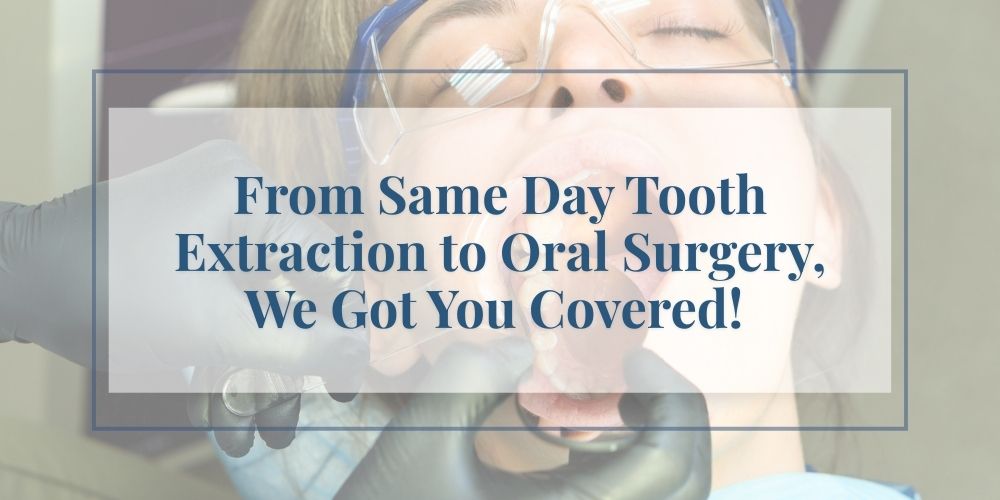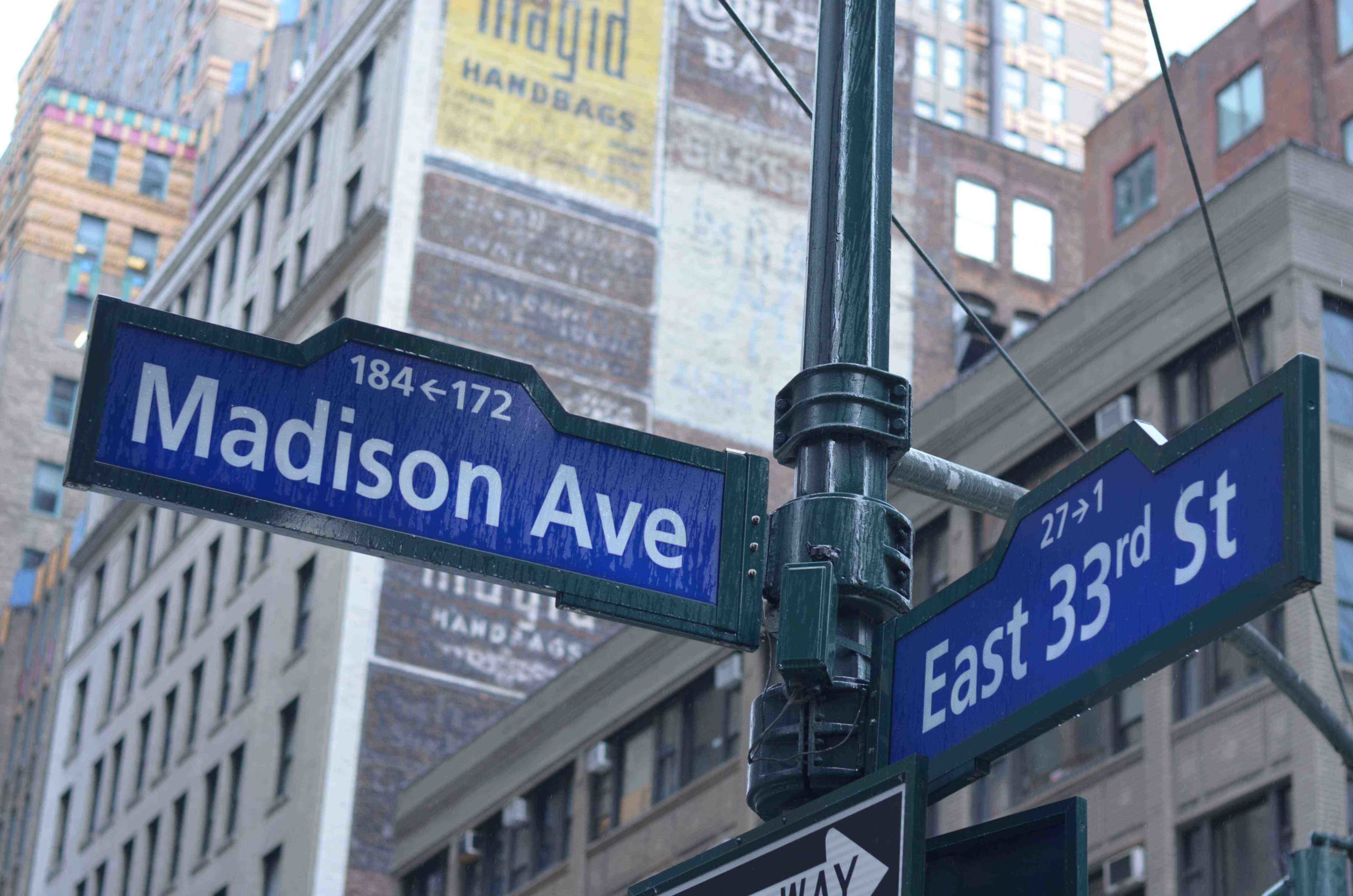Why Remove a Tooth?
If possible, we always strive to preserve your natural tooth, whether with dental fillings, crowns, onlays, or root canals. However, there are a variety of reasons we may recommend teeth extraction:
- Teeth are badly damaged
- Sever tooth decay
- Vertical fracture in the tooth
- Sever bone loss that cannot be repaired with bone graft
- Periapical infection after failed root canal that cannot be fixed
- Impacted wisdom teeth
Under these circumstances tooth removal may be the only solution and the best way to ensure that your surrounding teeth are not compromised.
When to To Extract a Wisdom Tooth?
For some patients, removal of all or some of the wisdom teeth may be the best route. Wisdom teeth are the last teeth to emerge, which means your mouth is already full of teeth by the time they erupt through the gums. Because of this, the emerging wisdom teeth can cause overcrowding, pushing the teeth out of alignment, and causing decay or periodontal disease.. They can also become impacted or stuck under the surrounding teeth, resulting in pain, infection, or damage to your other teeth.
If your impacted wisdom tooth is bothering you,
schedule a consultation with our oral surgeon, Peter Chen, today!
The Tooth Extraction at 172 NYC Dental
The tooth extraction process varies slightly depending on where the tooth is located, why it is being removed, and the tooth’s condition.
Preliminary Considerations:
- Simple tooth extractions, where a tooth is easily accessed, are fairly straightforward.
- The procedure varies if the tooth is decayed, impacted, or broken.
- It will be taken into consideration how the tooth will be replaced prior to the surgery.
Tooth Extraction Process
Our process includes several proven steps based on your situation.
- Diagnostic Care: All medical, dental histories will be reviewed, as well as incredibly accurate records that are taken with x-rays, Panorex, and dental CT-Scan if needed.
- Treatment Plan: The dentist will go over the extraction process – pros, cons, possible side effects. The doctor will also discuss your options for restoring the tooth – temporary and permanent solutions.
- Anesthesia: We use advanced pain management techniques to ensure minimal discomfort. Most of our extractions are done with local anesthesia. All of our doctors have soothing personality, ultramodern surgical suite, music to create a tranquil safe environment that allows patients to feel very comfortable. When needed Nitrous oxide or IV Sedation is available.
- Extraction: We extract the tooth using special instruments that gently remove the tooth using levers:
- For impacted or broken teeth, we may make an incision in the gum to perform the extraction.
- Any incision is closed with a few sutures.
- Bone Graft: We may place bone graft material and cover it with membrane so that strong bone grows back in the socket. This helps us preserve bone at the extraction site.
- Temporary Restoration: The reassuring thing is that any tooth that is lost can in some fashion be replaced.
- If anterior teeth are being extracted, cosmetic temporary teeth can be placed at the time of surgery; so that everyone goes home feeling complete.
- Flipper, a small removable denture, is another option to replace tooth the same day.
Post-op Care
- Following surgery, post-operative instructions are given.
- Prescriptions for discomfort, antibiotics may be written.
- After, we will recommend ice packs or medication to help manage pain and swelling.
- Rest, ice, and a soft diet are often recommended.
- Post-op visits will be two weeks following surgery
Restoring Extracted Tooth
PRO TIP: Two to three months after extraction the bone will be able to accept the placement of a dental implant.
In today’s world, implant dentistry is the gold standard for the replacement of missing teeth. In keeping with our concept of comprehensive care, our doctors will discuss the need and manner for replacement of the extracted teeth.
-
Dental Implant – replaces the missing tooth root with a titanium post and crown.
-
Fixed Dental Bridge – attaches an artificial tooth to the adjacent teeth.
-
Removable Partial Denture – a prosthetic that clips onto surrounding teeth.
-
Complete Denture – if multiple teeth are missing, a full denture may be needed.
-
Implant-Supported Denture or Bridge – combines implants with a larger prosthetic for stability.
Extraction and Other Oral Surgery Procedures in New York
If you need oral surgery or have other oral health concerns, you can count on the specialists at 172 NYC Dental for superior results.
Contact us today to schedule your consultation so that you can learn more about our full range of oral surgery options.
FAQ
Can I get a same day tooth extraction?
Yes. We provide same day tooth extraction for new and existing patients in out Midtown East dental office. Sedation options are available — please call to inquire.
Do I Need to Extract My Wisdom Teeth?
Even if your wisdom teeth do not present any of these issues, their location in the far back makes them difficult to care for. This can put your wisdom teeth at risk for decay or infection. We do not arbitrarily extract wisdom teeth (third molars). If there is no pathology present, we are happy to observe your wisdom teeth without any treatment (even if they are impacted).
When can I eat after tooth extraction?
Most patients can eat soft foods within 24 hours after a tooth extraction. Avoid hard, crunchy, or spicy foods until healing improves, usually after 3–5 days.
When to stop using gauze after tooth extraction?
You should keep gauze in place for about 30–60 minutes after your extraction, changing it as needed if bleeding continues. Most patients can stop using gauze once the bleeding slows down, usually after a few hours.
When can I smoke after wisdom tooth extraction?
It’s best to avoid smoking for at least 72 hours after wisdom tooth extraction. Smoking too soon can dislodge the blood clot and cause dry socket, a painful complication.
When can I use a straw after tooth extraction?
Avoid using a straw for at least 48–72 hours. The suction can dislodge the blood clot and delay healing.
When can I drink alcohol after wisdom tooth extraction?
Wait at least 48 hours before drinking alcohol. Alcohol can interfere with healing and interact with pain medication.
When can I drink soda after wisdom tooth extraction?
Carbonated drinks should be avoided for 24–48 hours after wisdom tooth extraction, as the bubbles may irritate the extraction site and affect clot formation.
When can I drink coffee after tooth extraction?
Hot drinks like coffee should be avoided for at least 24 hours. After that, you may drink lukewarm coffee, but avoid very hot temperatures to protect the healing area.
When can I use mouthwash after tooth extraction?
Do not use commercial mouthwash for the first 24–48 hours. Instead, rinse gently with warm salt water starting the next day, unless directed otherwise by your dentist.
When can I brush my teeth after wisdom tooth extraction?
You can brush your teeth gently the evening of your surgery, avoiding the extraction site. Resume normal brushing after 2–3 days once tenderness improves.
When can I vape after tooth extraction?
Like smoking, vaping should be avoided for at least 72 hours. The suction and chemicals can interfere with healing and increase the risk of dry socket.











